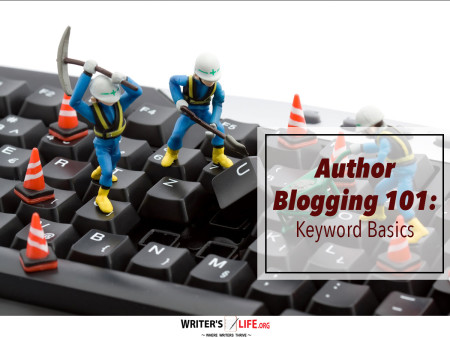- How To Tackle Jealousy In Creative Writing
- Common Submission Mistakes
- How To Stop Your Blog Becoming Boring
- The One Thing Every Successful Writer Has In Common
- How To Make Yourself Aware Of Publishing Scams
- Why Almost ALL Writers Make These Grammar Mistakes At Some Point
- 5 Tips For Authors On How To Deal With Rejection
- Top Mistakes to Avoid When Writing a Novel
- How to Avoid Common New Writer Mistakes
- 10 Mistakes New Fiction Writers Make
How to Edit a Manuscript Without Burning Out

Edit Manuscript Efficiently in a way that spares you the mental and physical exhaustion. Let's explore some stress-free editing strategies that will make your revision process not just manageable, but enjoyable. Too often, the editing phase feels like a mountain to climb. But trust me, with the right techniques, it's more of a scenic hike than a grueling marathon.
The Importance of Productive Manuscript Editing
You might be wondering why productive manuscript editing is crucial. Think of editing like tuning a guitar. Without it, the music won't resonate well. Efficient manuscript editing ensures your words hit the right notes, making them impactful and memorable to your reader.
Efficient manuscript editing involves several key components. First, recognize that editing isn’t just about correcting typos. It's about honing your story. You’re clarifying your message, refining your characters, and tightening your plot. It's like polishing a gemstone; each cut and polish reveals more brilliance.
Start by setting realistic expectations. Don’t expect to finish editing an entire manuscript in one sitting. Instead, try setting smaller, more manageable goals. This approach makes the task less daunting and keeps burnout at bay.
Stress-Free Editing Strategies You Can Use
Stress-free editing strategies are essential in maintaining your creativity. Imagine yourself as a gardener. Would you enjoy cultivating your garden if you spent all your time pulling weeds until your hands bled? Certainly not. The same goes for editing. Approach it with care and patience.
Take regular breaks. According to Wikipedia, taking breaks can help maintain mental acuity and prevent fatigue. Step away from your desk every hour or so, even if it's just to stretch. This can dramatically improve your focus and stave off fatigue.
Another tip is to separate different types of editing tasks. Dedicate particular sessions to focus on one aspect at a time, be it grammar, structure, or character development. This division helps keep your mind fresh and alert, making it easier to edit manuscripts effectively.
Manuscript Editing Tips to Boost Motivation
Keeping your motivation levels high during editing can feel like chasing the wind. But with some well-placed manuscript editing tips, you can keep your spirits buoyed. One great tactic is to reward yourself. Think of it as a little cheering squad every time you reach a milestone.
If you’ve slogged through fifty pages, treat yourself to a little something special, whether that's a piece of chocolate or a short walk in the sun. These small rewards can encourage you to push through challenging sections.
Joining a community can also boost your spirits. Being part of a writing group where you exchange feedback can be invigorating. Discussing your hurdles with others often reveals fresh perspectives and keeps you energized. Want to promote your book after it’s published? Check out our Book Marketing Articles.
How to Avoid Burnout in Editing
Burnout is like a silent enemy that sneaks up when you least expect it. Avoid burnout in editing by making sure your approach is sustainable. Editing isn’t a sprint—it’s a marathon. Pacing yourself allows you to maintain a steady flow without crashing.
Create a comfortable editing environment. Bright, cluttered spaces can be distracting, affecting your ability to stay focused. Opt for a comfortable chair, good lighting, and minimal noise. Sometimes, just changing your surroundings can rejuvenate your energy.
Don’t forget the importance of self-care. Regular exercise, a balanced diet, and adequate sleep play significant roles in preventing burnout. Taking care of your body also takes care of your mind, enabling you to engage in efficient manuscript editing.
Practices to Edit Manuscripts Effectively
We all want practices to edit manuscripts effectively, but what does that look like in practice? Think of robots versus human chefs. Robots follow set recipes, while humans adapt and taste as they cook. Adaptability is key.
Use tools wisely. While grammar checkers and editing software can be incredibly helpful, they lack the nuances that a human brain can grasp. Use these tools as guides, not crutches.
Lastly, listen to your manuscript. It's not just about what you want to say; consideration of how it sounds to the reader is crucial. Reading sections out loud can expose awkward phrasing or unclear passages, making your edit processes more effective.
“Editing a manuscript is like sculpting; it’s not just about taking away, but also about adding depth and dimension to your work.”
Frequently Asked Questions About Edit Manuscript Efficiently
Q: How can I edit manuscripts stress-free?
A: Break the editing process into manageable chunks, take regular breaks, and maintain a positive work environment to avoid stress.
Q: What are some manuscript revision techniques for efficiency?
A: Focus on one type of editing at a time, and use editing tools judiciously while always staying engaged with the content’s flow and emotion.
Q: Is there a way to avoid burnout while editing?
A: Yes, establish a balanced routine including breaks, self-care, and creating an inspiring workspace to help mitigate burnout risks.
If you're serious about growing your author career, don't miss out on these free tools and templates built specifically for writers. Access all 7 free resources here.



























